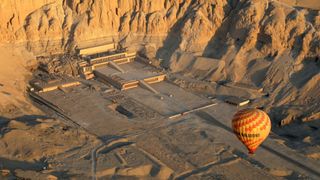Eclipse-watchers have plenty to look forward to in the next decade.
Over the next ten years, Earth will experience seven total solar eclipses that will see skywatchers in Australia, Egypt, Spain and Sudan peer up at the central shadow of the moon. The first of these eclipses will take place on Aug. 12, 2026, and the final one will be on March 20, 2034, with the maximum durations of totality of each total solar eclipse ranging from 1 minute, 8 seconds to 6 minutes, 23 seconds.
Here are the important details about where, when and how to experience these upcoming total solar eclipses throughout the next decade.
1. Total solar eclipse of 2026
Total solar eclipse of 2026
When: Wednesday, Aug. 12, 2026
Where: Russia, Greenland, Iceland and Spain
Maximum duration of totality: 2 minutes, 18 seconds
Europe’s first total solar eclipse for 27 years will coincide with the peak of the annual Perseid meteor shower.
The path of totality will pass over Greenland, western Iceland and northern Spain, and the best way to experience maximum totality will be watching it from a cruise ship on the ocean near Reykjavik, Iceland.
The chances of a clear sky on Aug. 12, 2026 are much higher in northern Spain, but the eclipse will be much lower in the sky, making sight lines slightly more difficult. From the Spanish island of Mallorca, it will even be possible to see a “sunset totality” featuring a golden corona (as long as there are clear skies).
2. Total solar eclipse of 2027

Total solar eclipse of 2027
When: Monday, Aug. 2, 2027
Where: Spain, Gibraltar, Morocco, Algeria, Tunisia, Libya, Egypt, Sudan, Saudi Arabia, Yemen, Somalia and British Indian Ocean Territory
Maximum duration of totality: 6 minutes, 23 seconds
The frequency of eclipses depends on something called Saros cycles, repeating patterns of movements in the sun, moon and Earth. These help astronomers predict when and where solar eclipses happen.
Saros 136 is our era’s preeminent family of total solar eclipses. It repeats every 18 years, 11 days and eight hours. The next one is on Aug. 2, 2027, with Luxor, Egypt, destined for a clear view of a total solar eclipse that will provide 6 minutes, 23 seconds of…
Click Here to Read the Full Original Article at Latest from Space…

